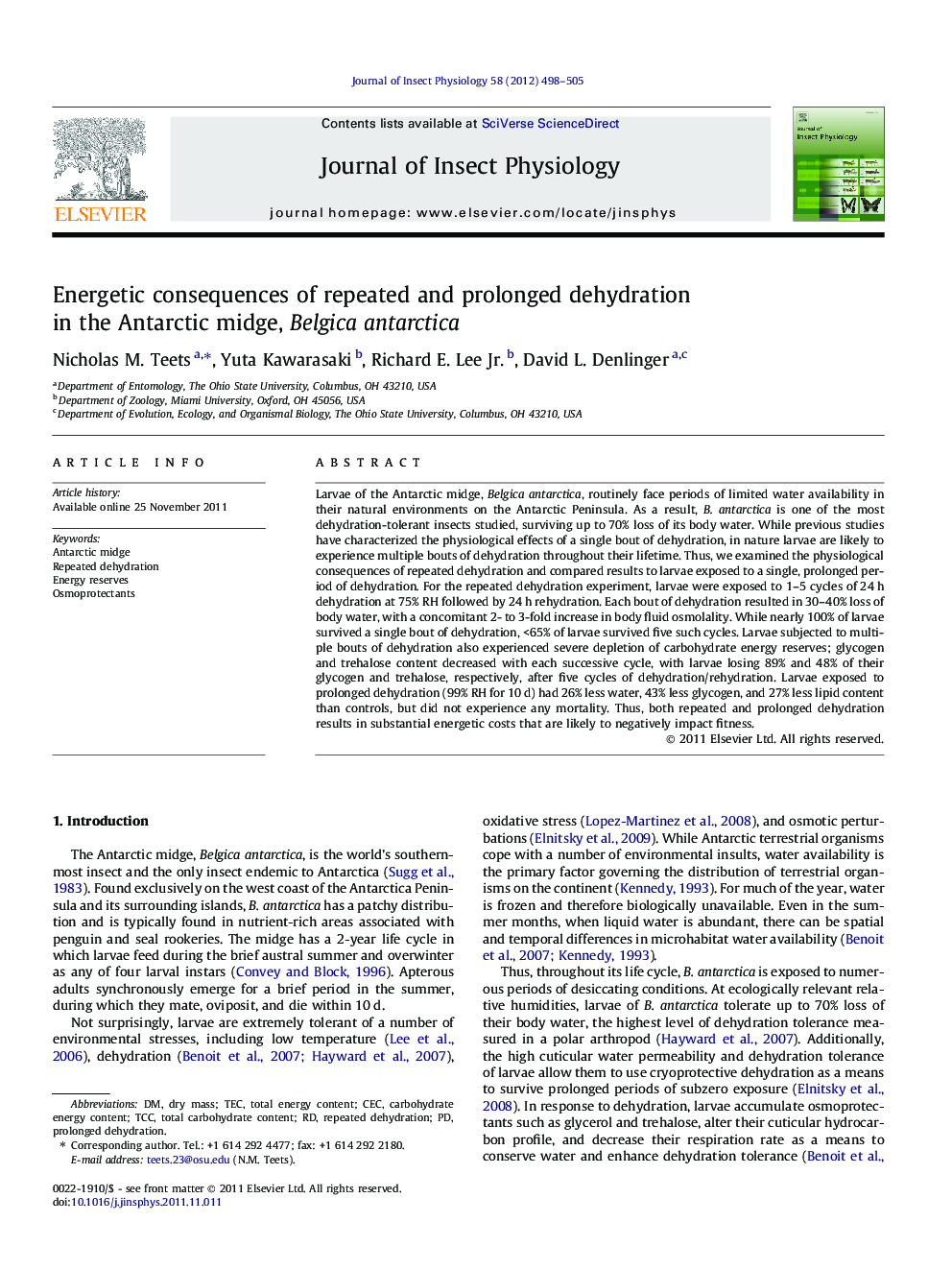| Article ID | Journal | Published Year | Pages | File Type |
|---|---|---|---|---|
| 2840625 | Journal of Insect Physiology | 2012 | 8 Pages |
Larvae of the Antarctic midge, Belgica antarctica, routinely face periods of limited water availability in their natural environments on the Antarctic Peninsula. As a result, B. antarctica is one of the most dehydration-tolerant insects studied, surviving up to 70% loss of its body water. While previous studies have characterized the physiological effects of a single bout of dehydration, in nature larvae are likely to experience multiple bouts of dehydration throughout their lifetime. Thus, we examined the physiological consequences of repeated dehydration and compared results to larvae exposed to a single, prolonged period of dehydration. For the repeated dehydration experiment, larvae were exposed to 1–5 cycles of 24 h dehydration at 75% RH followed by 24 h rehydration. Each bout of dehydration resulted in 30–40% loss of body water, with a concomitant 2- to 3-fold increase in body fluid osmolality. While nearly 100% of larvae survived a single bout of dehydration, <65% of larvae survived five such cycles. Larvae subjected to multiple bouts of dehydration also experienced severe depletion of carbohydrate energy reserves; glycogen and trehalose content decreased with each successive cycle, with larvae losing 89% and 48% of their glycogen and trehalose, respectively, after five cycles of dehydration/rehydration. Larvae exposed to prolonged dehydration (99% RH for 10 d) had 26% less water, 43% less glycogen, and 27% less lipid content than controls, but did not experience any mortality. Thus, both repeated and prolonged dehydration results in substantial energetic costs that are likely to negatively impact fitness.
Graphical abstractFigure optionsDownload full-size imageDownload as PowerPoint slideHighlights► We examined the effects of repeated and prolonged dehydration in Belgica antarcitca. ► During each dehydration cycle larvae lost 30–40% of their body water. ► Repeated dehydration/rehydration caused significant mortality and midgut damage. ► Five cycles of dehydration/rehydration caused 67% depletion in total carbohydrate energy. ► Prolonged dehydration caused significant depletion of both carbohydrates and lipids.
